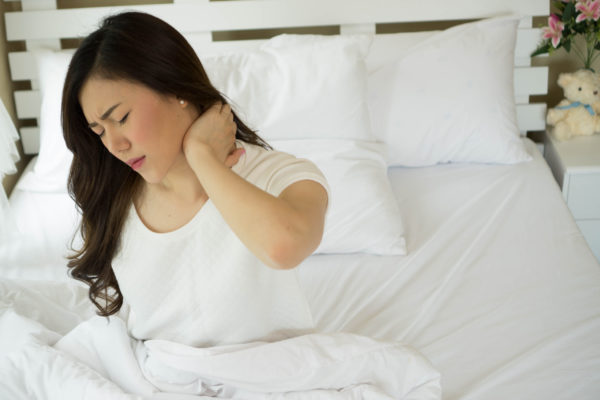
If you experience an achy neck upon awakening in the morning, your pillow habits could be to blame. You may be using pillows to “overstuff” the space between your neck and the mattress or be sleeping on an older, flattened pillow. Fluffy feather pillows are usually better than foam for providing proper support; replace them as necessary, every year or so. And do not sleep on your stomach if you have neck issues.
During the day, help your neck by not sitting too long in one position. If you have frequent phone conversations, use a speakerphone o r hands-free heads e t . And if you read in bed often, try using a wedge pillow designed to hold the book in the proper position, so you do not hunch your shoulders and hold your arms awkwardly—a certain recipe for neck pain.
Your neck pain could also be radiating from your temporomandibular joint (TMJ), the jaw-skull juncture, which is affected if you grind your teeth, clench and unclench your jaw often or chew lots of gum. Or, if you are over age 50, you could have osteoarthritis (age-related degeneration) of the neck, also called the cervical spine.
Reduce the pain so you can use your neck fully, because with too much rest, your neck muscles will become deconditioned, contributing to even more problems. Easy-to-implement solutions may include
- gentle stretching right before bed and when you get up
- a hot shower after arising;
- physical therapy, including custom-designed stretches and strengthening exercises; and
- ice application (15–20 minutes), acetaminophen or a nonsteroidal anti-inflammatory drug (NSAID), if your physician recommends this, to reduce the pain so you can more comfortably stretch and exercise.
If, after taking these measures, your neck pain persists, we can prescribe other measures to help you to lose that “pain in the neck” feeling.
